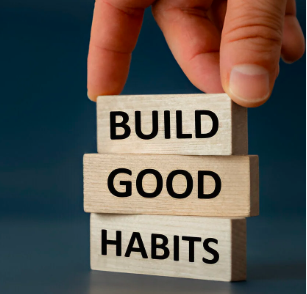In everyday life, we all rely on patterns. From brushing our teeth in the morning to winding down before bed, routines help us move through the day with less stress and more ease. But when it comes to creating new habits—especially those aimed at improving health, productivity, or well-being—many people struggle to stay consistent. The secret often lies not in motivation alone, but in the structure of a strong routine. By building routines that support and guide us, habits become more sustainable and less dependent on willpower.
At the core, a routine is simply a set of actions done regularly, often at the same time or in the same sequence. When these actions are intentional and well-placed, they serve as anchors in our day, making it easier to incorporate new behaviors. For example, someone trying to drink more water may pair it with an existing routine like making coffee. This simple connection reduces the mental effort required to remember the new habit, allowing it to flow naturally into their day.
Strong routines offer stability, which is especially helpful during periods of stress or change. When life feels unpredictable, routines provide a sense of normalcy and control. They remind us of what we can rely on, even when external circumstances shift. This reliability strengthens habits by making them feel automatic and secure rather than forced or overwhelming.
Another powerful element of routines is the reduction of decision fatigue. Each day, people make countless small decisions. Without structure, even beneficial actions can feel like just another thing to think about. But when a habit is part of a routine, there’s no need to decide whether to do it—it’s already planned. This is why someone who sets a regular time to exercise, such as after work or first thing in the morning, is more likely to stick with it than someone who tries to “fit it in when they can.”
Routines also help create a rhythm, which can be deeply motivating. The predictability of a routine fosters progress. Each repetition strengthens the neural pathways that reinforce a habit, making it more natural over time. As the new habit blends into a daily routine, it begins to feel less like a chore and more like a part of one’s identity. For instance, someone who stretches every evening before bed may start to think of themselves as a person who values relaxation and body care.
Consistency plays a major role in turning small changes into lasting habits. A strong routine acts like a gentle reminder, pulling the habit along with it. Even if a person is feeling tired or distracted, the flow of their routine can guide them back into action. It’s this regularity—not intensity—that makes habits endure. Small, repeated actions often bring more lasting results than sporadic bursts of effort.
Building strong routines also gives us opportunities to reflect and adjust. Because routines are built with purpose, we become more aware of how time is spent and where improvements can be made. This mindfulness helps in noticing which habits feel energizing and which feel burdensome, allowing thoughtful changes rather than giving up altogether.
Importantly, routines should remain flexible enough to fit into real life. A rigid schedule that doesn’t account for the occasional unexpected event can lead to frustration. Instead, strong routines include space for small disruptions while maintaining the core structure. This resilience helps the routine hold up over time, even when life throws curveballs.
One of the best ways to build strong routines is to start small. Instead of trying to change everything at once, choosing one or two key habits to place into a regular time slot can lead to success. As that becomes easier, more layers can be added. This gradual approach reduces overwhelm and builds confidence as consistency grows.
Celebrating small wins also plays a part in maintaining routines. When someone notices the benefits of a new habit—like more energy from consistent sleep or clearer thinking from a morning walk—it reinforces the value of the routine. These internal rewards help keep the routine alive long after the initial motivation fades.
A well-structured routine doesn’t need to be perfect to be effective. The goal is not to control every moment of the day, but to create a steady rhythm that supports one’s goals and well-being. In time, this rhythm becomes a background beat for the day, making life smoother and more intentional.
For those working on personal growth, whether it’s in health, career, or emotional wellness, a strong routine provides the foundation. It turns goals into actions and actions into habits. It removes the guesswork and creates space for flow. Rather than relying on willpower, which can run dry, routines lean on consistency, which can carry us through even low-energy days.
Ultimately, habits that last are built on a structure that supports them day in and day out. While motivation may come and go, and life may shift unexpectedly, a strong routine holds steady. It becomes the quiet partner that helps a person move toward their goals with confidence and clarity. With patience and care, anyone can build routines that not only support their habits but make them last for the long haul.














